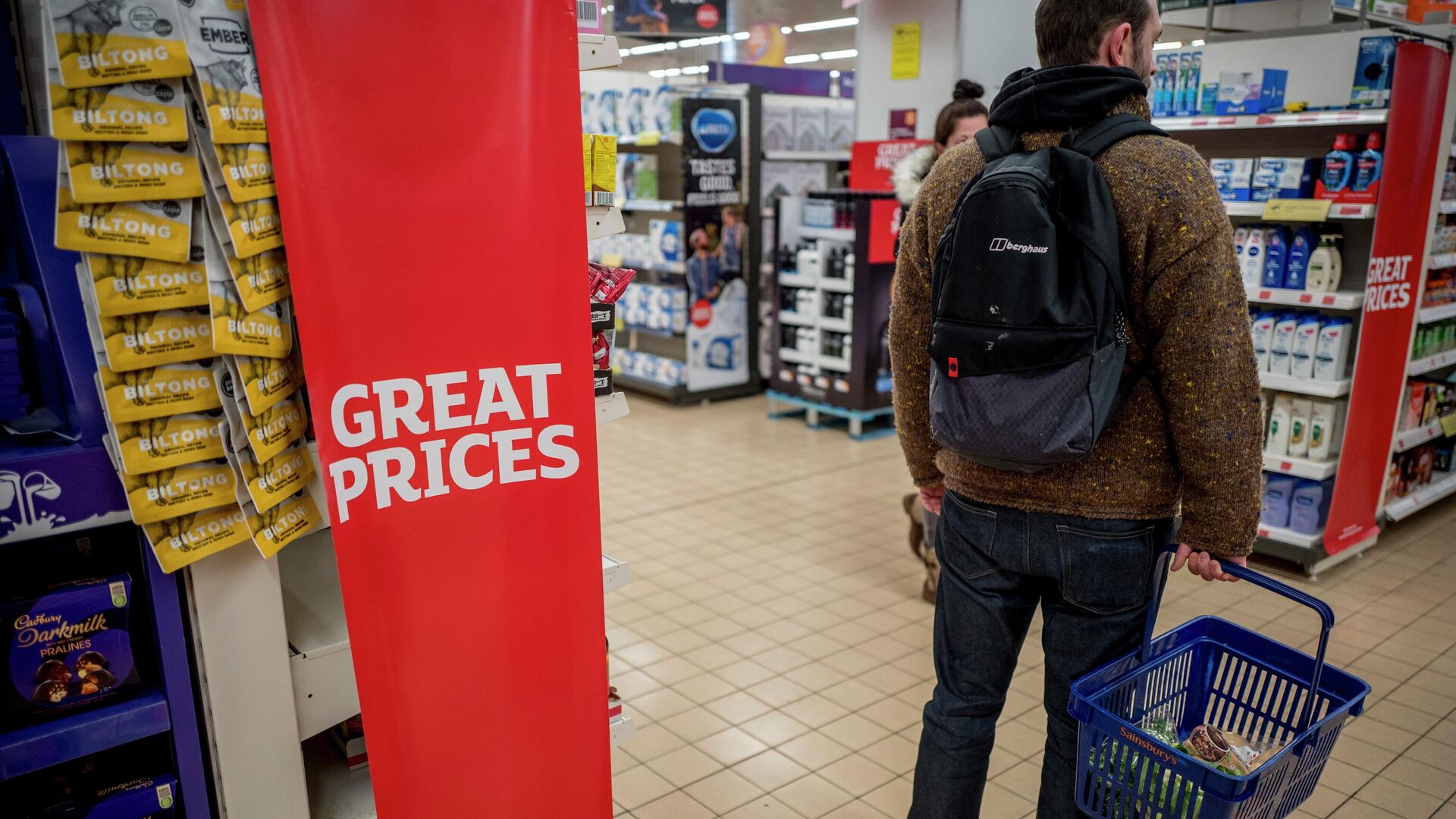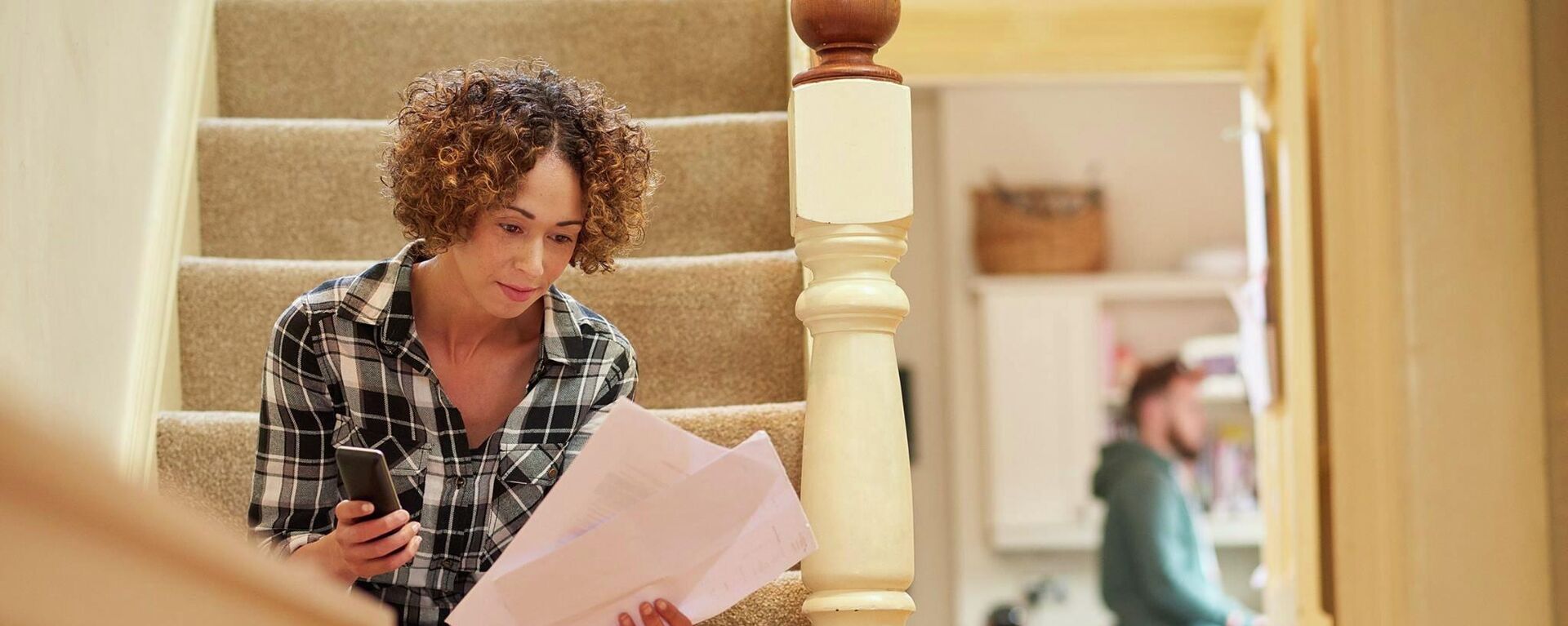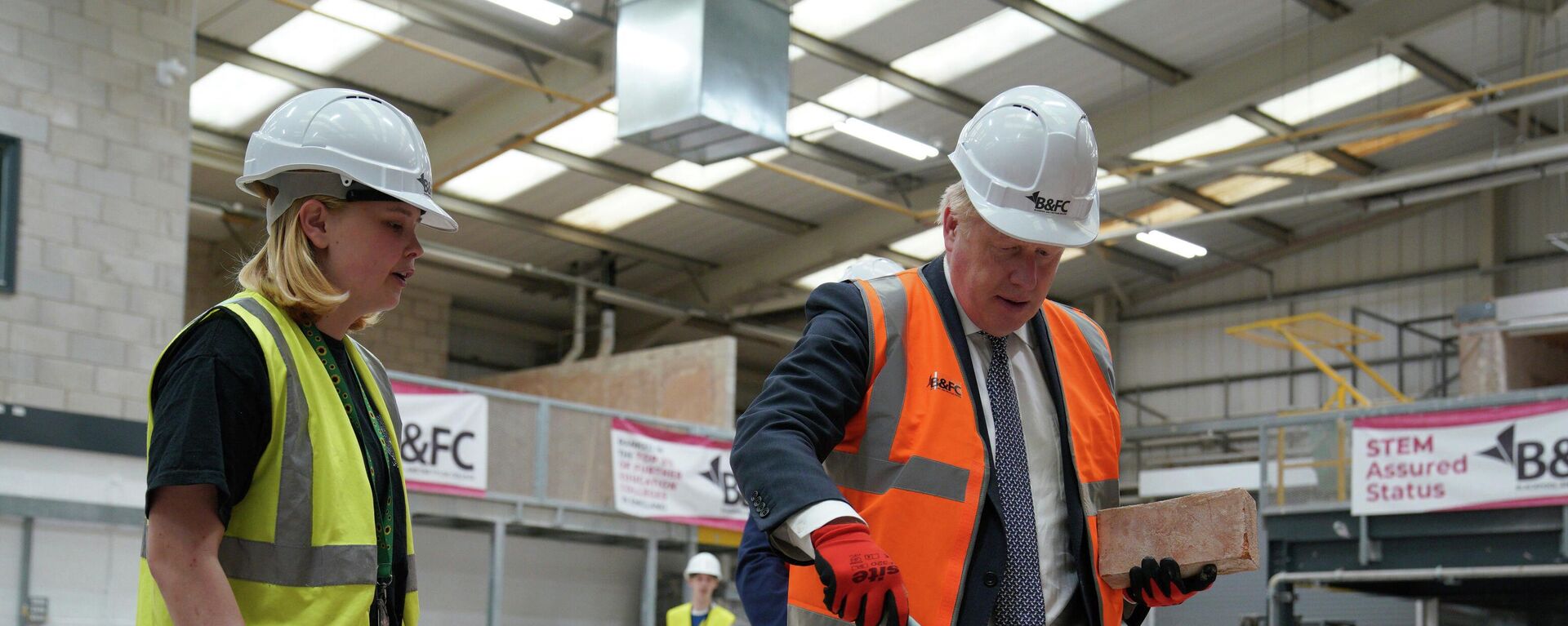https://sputnikglobe.com/20220613/uk-economy-slumped-by-03-in-april-amid-onslaught-of-cost-of-living-crisis-ons-data-shows-1096268096.html
UK Economy Slumped 0.3% in April As Cost of Living Crisis Began to Bite, ONS Data Shows
UK Economy Slumped 0.3% in April As Cost of Living Crisis Began to Bite, ONS Data Shows
Sputnik International
Previously, an Office for National Statistics (ONS) survey found that 40 percent of people in the UK were cutting back on non-essential travel to avoid... 13.06.2022, Sputnik International
2022-06-13T10:23+0000
2022-06-13T10:23+0000
2023-05-28T15:19+0000
cost of living
boris johnson
energy prices
office for national statistics
united kingdom (uk)
https://cdn1.img.sputnikglobe.com/img/07e6/05/1e/1095877661_0:0:3072:1728_1920x0_80_0_0_f51ea04fb7cea0cd9676a9822bb38134.jpg
After stagnating for more than two months, the UK economy defied forecasts and shrank in April.Gross domestic product fell 0.3 percent between March and April amid the onslaught of the cost of living crisis, data published by the Office for National Statistics (ONS) revealed.ONS analysis shows that services in April contracted by 0.3 percent, acting as the principal driving force behind the overall GDP decline in Britain.Manufacturing dropped by 0.1 percent and construction fell by 0.4 percent. Production and construction also fell by 0.6 percent and 0.4 respectively - the first time all main sectors have contracted since January, 2021.According to ONS director of economic statistics, Darren Morgan, there had been a big drop in the health sector because of the winding down of the National health Service (NHS) Test and Trace activity, which helped push the UK economy into negative territory in April.Soaring fuel prices hitting drivers and businesses at the pump also contributed to the slump in economic output.The price of petrol reached new highs recently, with the RAC describing 9 June as a "dark day for drivers" after the cost of filling up a family-size car exceeded £100 for the first time. According to recent data from the RAC and Experian, the average cost of petrol is 183.2p per litre and 188.8p per litre for diesel. An ONS survey found that 40 percent of people around the UK were forced to cut back on non-essential travel to avoid paying more for petrol.In the consumer-facing services, output had risen 2.6 percent in the month, with growth in spending on hairdressing and food services. Nevertheless, the sector still remained below pre-pandemic levels.Under pressure from the unexpected shrinkage, the pound fell 0.5 percent against the dollar in early London trading, hitting its lowest level since May 2016.Economists previously polled by Reuters had predicted GDP would grow by 0.1 percent in April.Weighing in with warnings of recession, the Confederation of British Industry's (CBI) chief economist Rain Newton-Smith told Sky News:Samuel Tombs, chief UK economist at Pantheon Macroeconomics, maintained that the UK would manage to dodge a full-blown recession, but predicted the economy would contract overall between April and June.The figures come as Prime Minister Boris Johnson’s government has been reportedly facing internal divisions over how best to respond to the faltering economic growth and the rising cost of living.The UK Prime Minister, who recently survived a no-confidence vote over “partygate” is believed to be under pressure to deliver policies that might "draw a line" under questions about his leadership.However, his own government is reportedly split over tax cuts that MPs and ministers have been calling for to tackle the cost of living crisis, British newspaper The Daily Telegraph previously reported.Responding to the ONS figures, UK Chancellor of the Exchequer Rishi Sunak was cited as saying:However, the Labour party shadow chancellor, Rachel Reeves, found the figures profoundly “worrying".
https://sputnikglobe.com/20220425/uk-households-face-cost-of-living-hell-forced-to-choose-between-meals-or-heating-shows-poll-1095028889.html
https://sputnikglobe.com/20220609/on-your-side-johnson-sets-out-plan-for-cost-of-living-crisis-1096157114.html
united kingdom (uk)
Sputnik International
feedback@sputniknews.com
+74956456601
MIA „Rossiya Segodnya“
2022
News
en_EN
Sputnik International
feedback@sputniknews.com
+74956456601
MIA „Rossiya Segodnya“
Sputnik International
feedback@sputniknews.com
+74956456601
MIA „Rossiya Segodnya“
cost of living, boris johnson, energy prices, office for national statistics, united kingdom (uk)
cost of living, boris johnson, energy prices, office for national statistics, united kingdom (uk)
UK Economy Slumped 0.3% in April As Cost of Living Crisis Began to Bite, ONS Data Shows
10:23 GMT 13.06.2022 (Updated: 15:19 GMT 28.05.2023) Previously, an Office for National Statistics (ONS) survey found that 40 percent of people in the UK were cutting back on non-essential travel to avoid inflated petrol prices which are a part of the cost of living crisis. It also found that about 41 percent were cutting back on food and essentials.
After stagnating for more than two months, the UK economy defied forecasts and shrank in April.
Gross domestic product fell 0.3 percent between March and April amid the onslaught of the cost of living crisis,
data published by the Office for National Statistics (ONS) revealed.
ONS analysis shows that services in April contracted by 0.3 percent, acting as the principal driving force behind the overall GDP decline in Britain.
Manufacturing dropped by 0.1 percent and construction fell by 0.4 percent. Production and construction also fell by 0.6 percent and 0.4 respectively - the first time all main sectors have contracted since January, 2021.
According to ONS director of economic statistics, Darren Morgan, there had been a big drop in the health sector because of the winding down of the National health Service (NHS) Test and Trace activity, which helped push the UK economy into negative territory in April.
“Manufacturing also suffered with some companies telling us they were being affected by rising fuel and energy prices. These were partially offset by growth in car sales, which recovered from a March that was significantly weaker than usual,” said Darren Morgan.
Soaring fuel prices hitting drivers and businesses at the pump also contributed to the slump in economic output.
The
price of petrol reached new highs recently, with the RAC describing 9 June as a "dark day for drivers" after the cost of filling up a family-size car exceeded £100 for the first time. According to recent data from the RAC and Experian, the average cost of petrol is 183.2p per litre and 188.8p per litre for diesel. An ONS survey found that 40 percent of people around the UK were forced to cut back on non-essential travel to avoid paying more for petrol.
In the consumer-facing services, output had risen 2.6 percent in the month, with growth in spending on hairdressing and food services. Nevertheless, the sector still remained below pre-pandemic levels.
“[Monthly GDP] wasn’t as weak as it looks, but it nonetheless increases the chances that the economy is slipping into recession,” Paul Dales, the chief economist at the consultancy Capital Economics, was cited as saying by The Guardian.
Under pressure from the unexpected shrinkage, the pound fell 0.5 percent against the dollar in early London trading, hitting its lowest level since May 2016.
Economists previously polled by Reuters had predicted GDP would grow by 0.1 percent in April.
Weighing in with warnings of recession, the Confederation of British Industry's (CBI) chief economist Rain Newton-Smith told Sky News:
“We’re going to see the biggest squeeze on household incomes, we expect, since records began. And as a consequence of that, consumption, household spending is likely to shrink every quarter for the next four quarters.”
Samuel Tombs, chief UK economist at Pantheon Macroeconomics, maintained that the UK would manage to dodge a full-blown recession, but predicted the economy would contract overall between April and June.
The figures come as Prime Minister Boris Johnson’s government has been reportedly facing internal divisions over how best
to respond to the faltering economic growth and the rising cost of living.
The
UK Prime Minister, who recently survived a no-confidence vote over “partygate” is believed to be under pressure to deliver policies that might "draw a line" under questions about his leadership.
However, his own government is reportedly split over tax cuts that MPs and ministers have been calling for to tackle the cost of living crisis, British newspaper The Daily Telegraph previously reported.
Responding to the ONS figures, UK Chancellor of the Exchequer Rishi Sunak was cited as saying:
“Countries around the world are seeing slowing growth, and the UK is not immune from these challenges. I want to reassure people, we’re fully focused on growing the economy to tackle the cost of living in the longer term, while supporting families and businesses with the immediate pressures they’re facing.”
However, the Labour party shadow chancellor, Rachel Reeves, found the figures profoundly “worrying".
“These figures are extremely worrying and will add to the concern families are still feeling about their own finances and the long-term health of our economy. Instead of properly addressing the structural weaknesses and insecurity they’ve created, all the Conservatives use are sticking plasters.”



